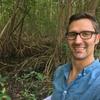Instructors: Ken Kellner, Marc Kéry, Andy Royle, & Josh Twining
Michigan State University, MI, USA; Swiss Ornithological Institute, Switzerland; USGS Eastern Science Center, MD, USA; Cornell University, Ithaca, NY, USA
Date: 22–26 July 2024
Venue: Michigan State University, East Lansing, MI, USA
Computers: Bring your own laptop with R and JAGS, etc.
Registration: 600 US$ (normal rate), 400 US$ (student rate)
Hierarchical models (HMs) are tremendously powerful in the modeling of species distribution and abundance, because they enable one to separately model the actual quantity of interest (typically presence/absence or abundance) from the measurement errors that contaminate all SDM data sets: false negatives and false positives. When these ubiquitous sources of errors are not adequately modeled, serious bias may result and jeopardize scientific conclusions and management decisions based on such data sets.
In this workshop we present some of the most useful HMs for species distribution and abundance and for both static and dynamic (i.e., changing) populations. Specifically, we cover the following topics:
- Occupancy models for binary detection/nondetection data
- Multispecies occupancy models
- Binomial N-mixture models for replicated count data
- Multinomial N-mixture models for replicated capture-recapture data
- Distance sampling models for a variety of distance sampling protocols
- Modeling of false positives
- Integrating multiple data types and integrated models
The course will be based on the two successful books "Applied hierarchical modeling in Ecology" by Kéry & Royle (Volume 1/2016, Volume 2/2021). Model fitting will be conducted by likelihood methods (i.e., through the R package unmarked) and by Bayesian MCMC methods through software JAGS, NIMBLE and the R packages ubms and spOccupancy.
In this intermediate-level workshop about 90% of the time is spent on lecturing and 10% on solving exercises. Some previous experience with BUGS software, or Bayesian statistics, is not assumed, but helpful, as is some previous exposure to occupancy and Nmix models. However, a good working knowledge of modern regression methods and of program R is required.
Please send your application to Ken Kellner [email protected] with CC to [email protected], [email protected] and [email protected] and describe your background and knowledge in statistical modelling, R and JAGS/Nimble, and occupancy/Nmix models, by 30 April 2024.
One or two course fee waivers will be available provided we get a sufficient number of paying sign-ups. To apply, please send us a description (at most 0.5 page) of why the course would be important for your work and why you should get a waiver.











Add the first post in this thread.